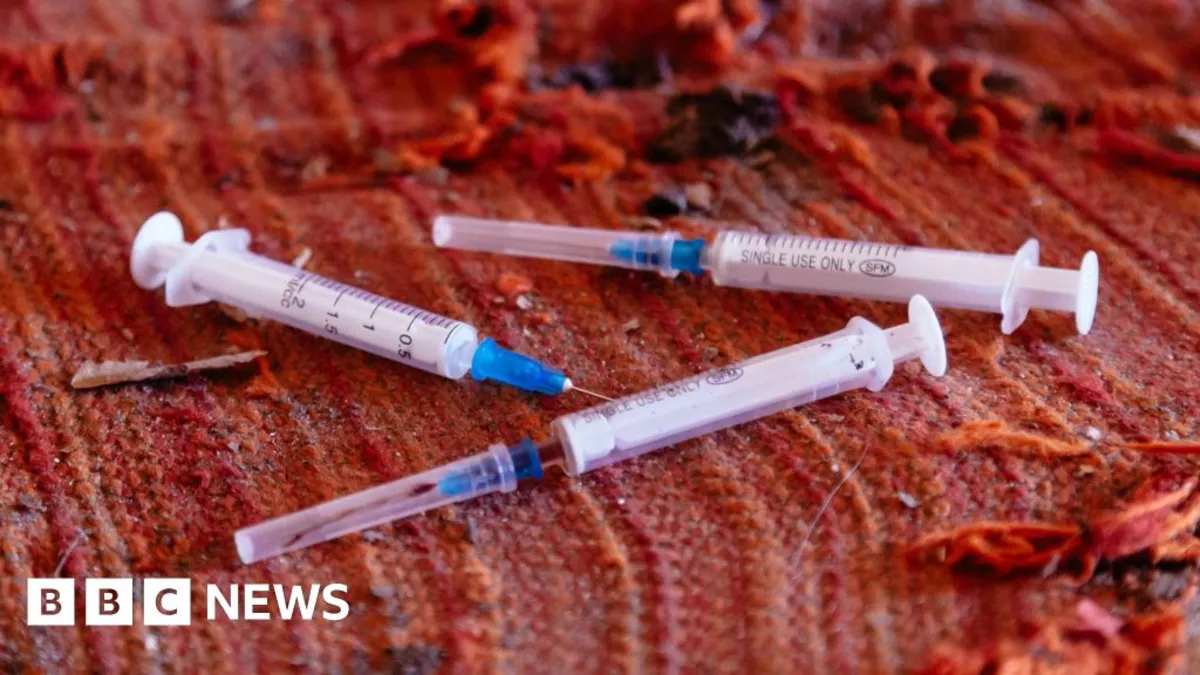
In recent years, Fiji has been grappling with a significant surge in HIV cases, a situation that has become a national crisis. Sesenieli Naitala, who founded Fiji's Survivor Advocacy Network in 2013, highlights a distressing reality: the youngest person she has encountered living with HIV is merely ten years old. This child, now one of many affected by the bloodborne virus, represents a growing population of young Fijians, particularly those aged 19 and younger, who have contracted HIV, often through intravenous drug use.
Over the past five years, Fiji, a small nation in the South Pacific with a population of under a million, has seen its HIV epidemic escalate at alarming rates. In 2014, fewer than 500 individuals were living with HIV, but by 2024, that number had surged to approximately 5,900, marking an elevenfold increase. The year 2024 alone witnessed 1,583 new cases, a staggering thirteenfold rise from the previous five-year average. Among these new cases, 41 individuals were aged 15 or younger, a significant increase from just 11 cases in 2023. This alarming trend prompted the Fijian Minister for Health and Medical Services to officially declare an HIV outbreak in January 2024.
Recently, Assistant Health Minister Penioni Ravunawa expressed concerns that Fiji may record over 3,000 new HIV cases by the end of 2025. He described the situation as a national crisis that shows no signs of slowing down. Experts, advocates, and health workers have pointed out that while increased awareness and reduced stigma around HIV have led to more individuals getting tested, many remain unaccounted for, indicating that the true extent of the epidemic is likely much larger than reported.
The foundation of Fiji's escalating HIV epidemic lies in a troubling rise in drug use, unsafe sexual practices, and a dangerous trend known as "bluetoothing." This term describes a practice where intravenous drug users share their blood after a drug hit, allowing multiple individuals to inject from a single syringe. Kalesi Volatabu, executive director of the NGO Drug Free Fiji, recounted a disturbing incident where she witnessed several individuals sharing a syringe in this manner during a routine outreach walk in Suva.
According to Volatabu and Naitala, the practice of bluetoothing has gained traction in recent years due to its perceived cost-effectiveness and the challenge of obtaining syringes in Fiji, where pharmacies often require prescriptions for syringes. The lack of needle-syringe programs exacerbates this issue, putting the responsibility on NGOs to provide clean syringes and condoms. In August 2024, Fiji's Ministry of Health and Medical Services officially recognized bluetoothing as a contributing factor to the country's rising HIV cases.
Another concerning factor contributing to Fiji's HIV epidemic is the rise of chemsex, where individuals use drugs, often methamphetamine, before and during sexual encounters. Notably, crystal meth is predominantly consumed via intravenous injection in Fiji, a trend that has become increasingly prevalent. The Ministry of Health reported that among the 1,093 new HIV cases recorded in the first nine months of 2024, approximately 20% were linked to intravenous drug use.
Fiji has emerged as a significant trafficking hub for crystal meth over the past 15 years, largely due to its strategic location between major manufacturing regions and high-paying markets in Australia and New Zealand. This has led to a crisis of meth use that mirrors the current HIV epidemic, both of which have been declared national emergencies. Alarmingly, the age of drug users is trending downward, with more young individuals falling prey to addiction.
Current statistics indicate that injectable drug use accounts for 48% of known HIV cases in Fiji, while sexual transmission accounts for 47%. Furthermore, mother-to-child transmission during pregnancy and childbirth remains a primary cause of pediatric HIV cases. Experts unanimously agree that a lack of education is a critical factor fueling this epidemic. Both Volatabu and Naitala are actively working to promote awareness and education about HIV, with hopes that increased knowledge will mitigate practices like bluetoothing.
José Sousa-Santos, head of the Pacific Regional Security Hub at New Zealand's University of Canterbury, warns that a "perfect storm" is brewing in Fiji. The concern extends beyond the current crisis, as experts fear the lack of resources and support systems for treatment will exacerbate the situation over the coming years. Following the outbreak declaration in January, the Fijian government has initiated efforts to enhance HIV surveillance and address underreported cases.
A recent report from the Global Alert and Response Network underscored the importance of a coordinated national response to reverse the trajectory of the HIV epidemic in Fiji. However, staffing shortages, communication challenges, and difficulties in data collection are hindering progress in understanding the true scale of the crisis. As Sousa-Santos ominously predicts, the current situation may only be the beginning, with a potential avalanche of HIV cases looming on the horizon.